
Build a thriving, profitable community by attracting the right people, engaging them in the right ways, and building a flywheel of unstoppable growth.

Build a thriving, profitable community by attracting the right people, engaging them in the right ways, and building a flywheel of unstoppable growth.

2025 National Democracy Summer School! This one-of-a-kind Democratic Fellowship—founded by Congressman Jamie Raskin and expanded across the country in an historic partnership with the DCCC—is dedicated to recruiting thousands of high school and college-age students and training them as the next generation of Democratic political activists and leaders.
Click here to apply today!
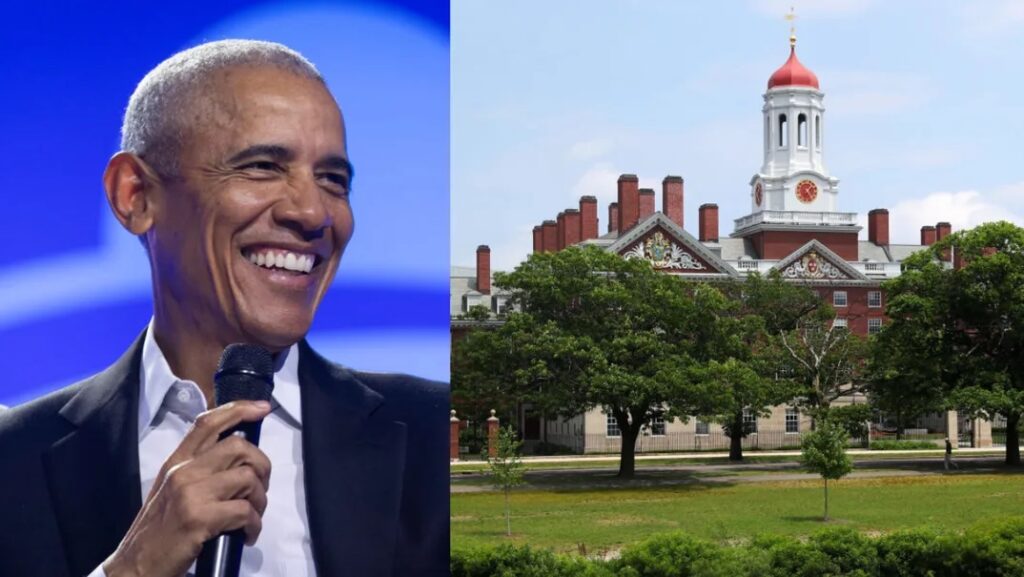
Former President Barack Obama applauded Harvard University after the Ivy League institution refused to comply with a list of the Trump administration’s campus policy demands in exchange for continued federal funding.
In a letter to the campus community published late Monday, Harvard President Alan M. Garber declared, “The University will not surrender its independence or relinquish its constitutional rights.” Read more at www.thegrio.com.

The City of St. Petersburg will secure an $85 million line of credit from Bank of America to pay for ongoing storm recovery costs.
Administrators believe borrowing the money is prudent given federal uncertainties and outstanding costs related to debris removal and Tropicana Field repairs. City council members discussed the unique measure and fiscal policy amendments at an April 10 committee meeting. Read more at www.stpetecatalyst.com.
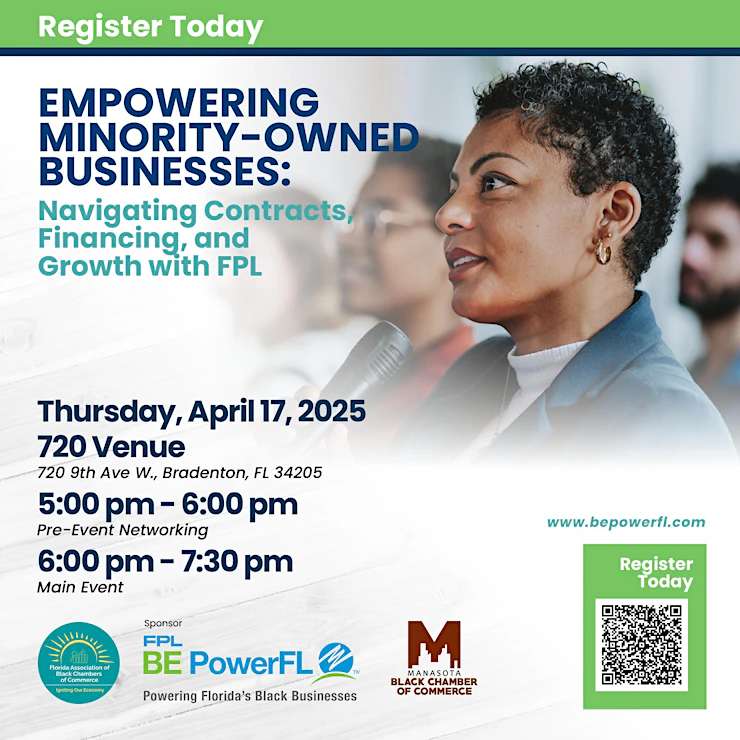
This event is designed to empower Black entrepreneurs with knowledge, strategies, and tools to strengthen their businesses. Click here to learn more.

In a tragic turn of events, a pilot leading a helicopter tour of New York City for a family of five from Europe perished alongside them after their aircraft crashed into the Hudson River.
Seankese ‘Sean’ Johnson, 36, has been identified as the pilot, and his death was confirmed by his wife, Kathryn Johnson. Read more at www.thegrio.com.

For over a century, St. Petersburg was home to one of Florida’s largest Black communities. No more. The city’s Black population shrank for a fifth year in a row, according to the latest Census data (released in December 2024).
That drops St. Pete to the #11 spot among cities in Florida with the largest African American resident base, a notch down from #10 the year prior, and way down from the #4 spot St. Pete held in 2000.
From a peak of more than 64,000 in 2018, the population was most recently measured at about 56,500 who identified as Black in 2023, a loss of 12%. Over the same time, St. Pete’s non-Black population grew by 5%.
The Power Broker magazine has clocked the trend over the past few years as the city’s Black residents began to leave in relative droves. When we last reported on it in late 2023, many of those leaving St. Pete were relocating to other parts of Pinellas County.
But the newest Census report show Black residents exiting St. Petersburg and Pinellas County altogether.
Figure 1: Change in St. Petersburg’s Black Population, 2010 to 2023 (5-Yr Data)
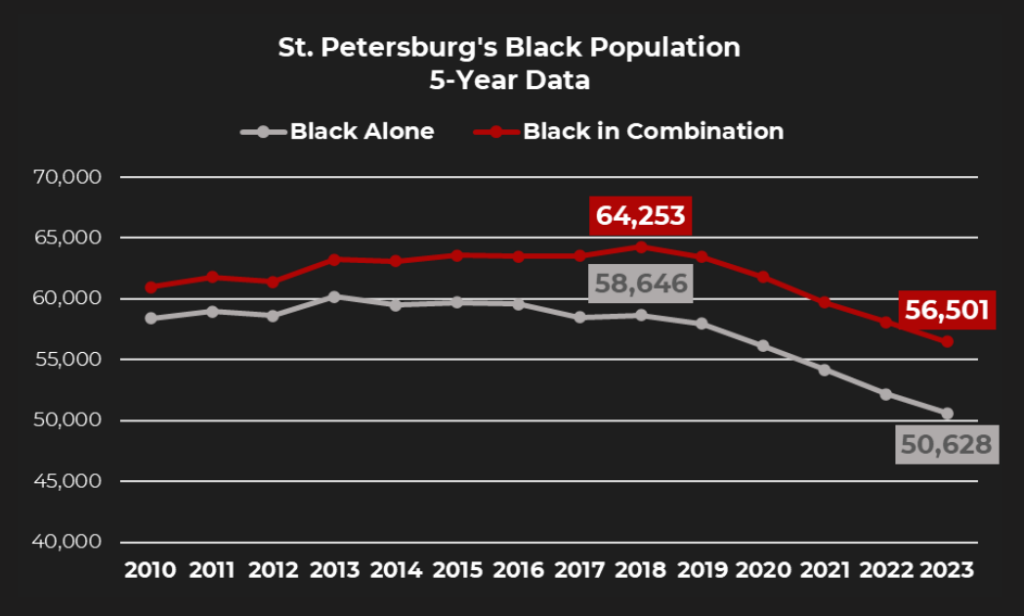
Top Reasons for the Exodus
A Power Broker survey in early 2024 revealed top reasons for the exodus from St. Pete. Black current and former residents were asked to identify factors behind the shift. The survey offered seven possibilities plus a free-form comment field.
Economic challenges dominated the list. An overwhelming 87% of survey takers selected “Housing costs and options are better in other places,” while 78% chose “Job and career prospects are better in other places,” and 46% selected “Business opportunities are better in other places.”
In fourth place, nearly four in 10 respondents (39%) said “School and educational opportunities are better in other places.”
The survey also presented social factors. Though they held relatively less weight, a significant share saw deficits in St. Pete’s social scene. An identical 29% of respondents chose “Social and leisure options are better in other places” and “Dating and marriage prospects are better in other places.”
Of note, only 1% said “Faith and worship options are better” elsewhere.
Underlying Dynamics
Respondents also entered over 140 free-form comments that offered a fascinating glimpse of potentially underlying dynamics. Three themes were punctuated throughout the remarks.
Gentrification Driving Up Housing Costs
The notion that local residents are being priced out of the city and South St. Petersburg area rang through. “Rent is ridiculous and most every new apartment or condo or townhouse building says ‘luxury’,” wrote one respondent. “Make housing more affordable!,” demanded another.
One person wrote, “Stop gentrifying and making everything too expensive.” Another commented, “Stop allowing corporations and investment companies buying up all the lots and affordable homes in South St. Pete. Basically stop the gentrification.”
A former St. Pete resident who now lives in north Florida wrote, “Control the housing costs. Homes in areas we grew up in are severely overpriced.”
The inability to purchase a home was touched on by a number of respondents. “I grew up in this city and I can’t understand why the city is not helping the individuals who work [in healthcare], servers, hotel employees access the funds set aside to purchase a home. I’ve tried over three times and have been denied.”
A recently departed younger professional wrote, “Florida’s selling point used to be affordability and low taxes but that is not the case anymore. Skyrocketing homeowners insurance rates and rental costs have made it just as bad if not worse than larger metros.”
A current resident and business owner said, “Blacks are being forced out by the city targeting certain black areas with code violations, and / or people not able to afford a house due to insurance and taxes so they look into buying in other areas.”
Lack of Cultural Diversity, Particularly Downtown
The number of remarks about the city’s lack of cultural diversity in social spaces was striking. Several commented in the context of St. Petersburg’s thriving downtown.
A Gen X-er wrote, “Downtown area needs more diversity. More quality of things to do for mature black residents…I would like to see more black owned restaurants and business.”
A downtown homeowner in his 30s suggested that “Culturally relevant experiences in the downtown area” would make St. Pete more attractive to Black residents.
“The lack of young African American professionals in the area also plays a key part in my consideration to move,” he wrote. “If it wasn’t for the significant rise in my property’s value I would definitely consider relocating to a more culturally diverse metropolitan.”
Other comments in this vein:
“There are almost no places for under 30 year old persons to socialize.”
“St Pete could do more to grow the cultural attractions that make people from all walks of life feel fully welcomed and included in the city.”
“I’m a downtown living transplant to this beautiful city. St Pete is great, if you got money!”
“There is not one business downtown that will attract “us” on a regular. Annual events…[aren’t] enough. Mondays at Ruby’s isn’t enough. We don’t have one place to listen to R&B, old school, hip hop or jazz downtown.”
“African-Americans will actually say they don’t go downtown because there’s nothing for them to do. People who visit are always looking for us, and I remind them all the time that they don’t entertain downtown and when they do, they truly look like the minority.”
The same individual expressed feeling embarrassed about the downtown landscape. “African Americans want to relocate here but struggle when it comes to seeing people who look like them downtown in such a beautiful location,” she wrote. “It’s actually embarrassing to warn others about the different businesses downtown when you know what they want does not exist.”
Racism; St. Petersburg Not Welcoming for African Americans
The perception of racial bias and racism in St. Petersburg showed up in more than 20 comments. Some related to feeling unwelcomed as Black people. For example:
“St. Petersburg feels as if black individuals are not welcome here.”
“We do not feel welcome on the beach at their restaurants except for a couple. I would leave if I could.”
“Make the city friendly towards the African American community.”
“Black people are often left out of planning in St. Pete. Also, black people are stuck because of rising cost and seem to be drowning. They need help and options for growth and development.”
Several relayed experiences of racial discrimination. One respondent detailed a personal brush with racism and said of the local vibe, “The environment in St. Pete is stifling and does not nurture growth and development and the chance to thrive.”
Another wrote, “I’m semi-retired and bought a retirement home in St Pete in 2012 but unable to live there full-time because of blatant employment and housing discrimination.”
Others spoke in more general terms, such as “Racism is big in this state,” and “Stop the racism here, it sucks.” When answering “What are the factors causing Black residents to leave St. Pete?,” separate individuals wrote, “Racism,” and “Racial undertones displayed by residents.”
A large handful suggested racial bias in the workforce and business communities as factors in Blacks departing the city. When asked what can be done to make St. Pete attractive for current or future Black residents, one local non-profit leader said, “Equal opportunities. Generations after segregation it is still harder for African American men and women to have a higher ranking position in the corporate world.”
Other notes on this topic:
“Structural racism needs to be addressed. It is prevalent in city government positions. Hiring policies and practices for professional positions should be revised.”
“Much more focus on true economic integration is needed in St. Pete.”
“City has to do a better job of being more inclusive.”
To Take the Survey or Learn More
If you are a current or former Black resident of St. Petersburg or Pinellas County, Florida, click here to take the survey on why African Americans are leaving in large numbers over the past five years.
To view our December 2023 report on the outmigration trend, click here.
Data Notes
The survey referenced above collected 118 responses in January 2024.
The graphs in this report display population data for St. Petersburg from two American Community Survey (ACS) data sets – 1-year and 5-year estimates – using the ACS Demographics table (DP05).
The 5-year set is less current but reliable as an indicator of overall trends. See figure 1 above. The 1-year set offers a more current view but has wider margins of error and missing data for 2020. See figure 2 below.
Both show Black population losses over the most recent five years of data (2018 to 2023).
Figure 2: Change in St. Petersburg’s Black Population, 2010 to 2023 (1-Yr Data)
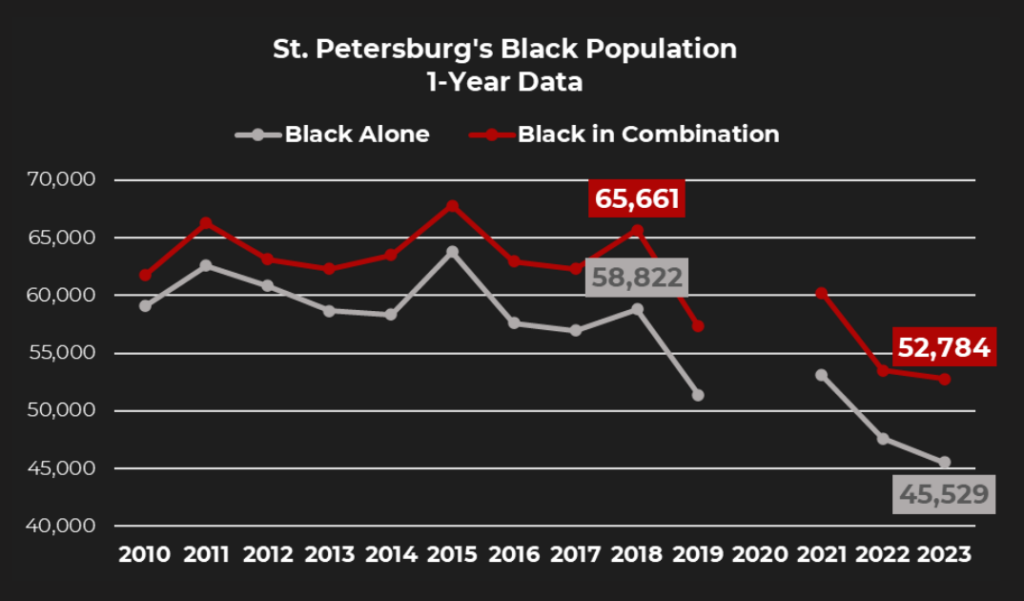
To share thoughts or questions, gypsy@powerbrokermagazine.com.

CNN’s Pete Muntean visits a Mississippi flight school founded by the Organization of Black Aerospace Professionals to discuss how students and teachers feel about the escalating federal campaign against diversity, equity and inclusion initiatives.

Last Friday, financial analysts lost it on live TV over the stock market meltdown in the wake of President Donald Trump’s April 2nd announcement of an aggressive new tariff regime. He gleefully called it “Liberation Day.”
Reuters estimated that the S&P 500 lost $5 trillion in market value in the two days following Trump’s unveiling of the tariffs last Wednesday. By closing bell on Monday, the losses were estimated at $6.4 trillion.
The nosedive was particularly bad news for Black Americans, since they’d only recently begun to regain momentum in the market following sharp losses from the Great Recession of 2007 and 2008.
Roughly 40% of Black families had money in the stock market in 2022, the most recent data year available from the triannual Survey of Consumer Finances by the Federal Reserve Board.
That ratio could be even higher today, given the trend of more African Americans investing in the wake of the pandemic. Data from the 2025 survey won’t be available until late 2026.
But we know that from 2019 to 2022, Black Americans saw a larger increase than whites, Hispanics and others in the share of households in the stock market.
If the trend continued, as many as 45% of Black households have stocks in their portfolios as of April 2025 (see Table 1 below).
Using the 2022 ratio, however, we can conservatively estimate Black America’s losses:
In the aggregate, black households saw their stock portfolios shrink by about $77 billion over the three trading days since Trump’s Liberation Day celebration.
Where things go from here is uncertain. As I write, a growing number of Republican lawmakers are joining Democrats to propose legislation that would override Trump’s currently unchecked power to set tariffs. Corporate CEOs and investors are also beginning to speak out against the tariffs or Trump’s roughshod approach to tariffs, including some Trump allies.
On Sunday, billionaire hedge fund manager and Trump ally Bill Ackman took to social media to ask Trump for a 90-day pause on the tariffs to think through a less catastrophic approach. Elon Musk has also posted prodding notes on X, asking Trump for zero tariffs on European countries.
Yet the president appears unfazed.
To lend your voice to the debate, find and contact your federal representatives at https://www.usa.gov/elected-officials.
Notes
Table 1: Change in percentage of families with stock holdings
| 2019 | 2022 | Change | Avg Yearly Change | Est. 2025 (if trend continued) | |
| White, non-Hispanic | 60.8% | 65.6% | 4.8% | 1.6% | 70.4% |
| Black, non-Hispanic | 33.5% | 39.2% | 5.7% | 1.9% | 44.9% |
| Hispanic | 24.2% | 28.3% | 4.2% | 1.4% | 32.5% |
| Other | 53.8% | 56.8% | 2.9% | 1.0% | 59.7% |
In South Carolina, lawmakers passed a controversial bill that targets state agencies and schools for any association with diversity, equity, and inclusion programs, training, or practices. Democratic State Representative JA Moore voted no after speaking out against the bill earlier Wednesday in a speech centered on his father, the fight to uphold civil rights, and the refrain, “I am not nervous.” Visit https://youtu.be/9cK2mpXbxWQ to watch the full video.
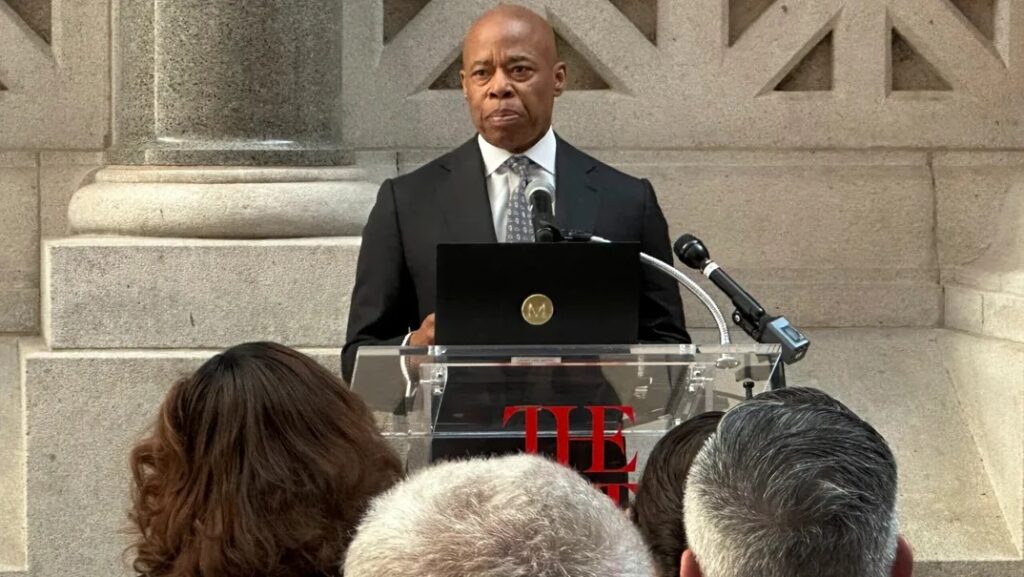
New York City Mayor Eric Adams on Thursday said he will pull out of the city’s Democratic primary and instead run for reelection as an independent, arguing that his recently dismissed federal bribery case had made it impossible to mount a primary campaign. Read more at www.thegrio.com.

Kevin Young, the director of the National Museum of African American History and Culture (NMAAHC), is currently on personal leave and not leading the museum, according to Smithsonian officials. The leave began on March 14 and will continue for an “undetermined period,” according to Kevin Gover, the Smithsonian’s under-secretary for museums and culture. Shanita Brackett, the museum’s associate director of operations, has stepped in as acting director. Young has served as director since January 2021, succeeding Lonnie G. Bunch III after Bunch became Secretary of the Smithsonian. Under Young’s leadership, the museum launched a digital “Searchable Museum” in the fall of 2021 and kicked off its $350 million “Living History” campaign the following year. Read more at www.blackpressusa.com.